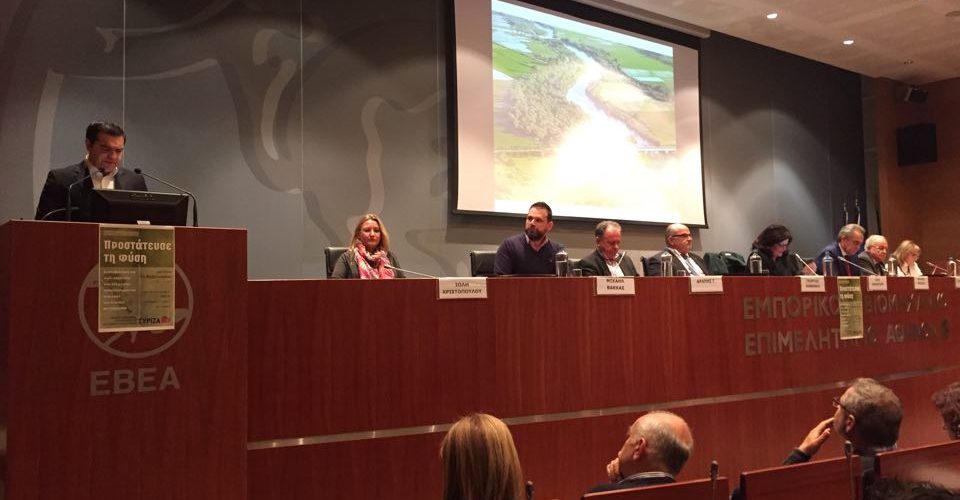Talk by Ioli Christopoulou titled “Protected areas as models of sustainable development: prospects and opportunities” at the SYRIZA event entitled “Governance and Eco-Development of Protected Areas (Natura 2000 sites)” on February 24, 2020.
You can watch the talk here:
Starting from the premise that protected areas are the main tool for nature conservation, the speech highlighted the development opportunities created by the effective management of protected areas. These opportunities lead to the creation of direct and indirect jobs, as well as induced ones, both in the management of areas and in connection with such sectors as primary production, tourism and education.
The international biodiversity conservation commitments to which Greece is bound set the target for 17% of land and 10% of marine and coastal areas to be protected and effectively managed by 2020. In relation to these objectives, Greece has succeeded in designating approximately 35% of its land area and 19% of its territorial waters as protected. Despite progress made in recent years, however, only 1% of the country’s protected areas is effectively managed.
In view of the anticipated new global biodiversity targets for 2030, Greece must support the global goal of designating at least 30% of the planet as protected, given also the context of the climate crisis. Furthermore, the national five-year biodiversity action plan should be reviewed to reflect this direction, with emphasis on the effective management of protected areas.
The prerequisites for a system of protected areas to be effective include operational and adaptive governance, mechanisms for equitable sharing of benefits, adequate funding, participatory management, monitoring and enforcement. In this context, it was proposed that the draft law to be proposed by the Ministry of the Environment and Energy must focus on ensuring the key central support for the system of protected areas, adequate financing and participatory governance.
Specifically, the Ministry of Environment must assume its role as a responsible supervisory and co-ordinating body providing operational support to the protected areas management bodies, as well as, uniform guidelines and common standards for site management. Adequate and consistent allocation of resources from Greece’s national budget and securing resources from European funding instruments are also crucial for the effectiveness of protected areas. In order for protected areas to become models of sustainable development and to be managed effectively, participatory management processes are crucial. Protected areas are not islets of protection but places where a variety of economic activities are developed, including rural, small industry and tourist activities. Through regulatory and management frameworks balance is sought for the protection of species and habitats.
In the process of improving the effective management of protected areas, assessment of the country’s protected system is needed, as with any modern governance systems. In this respect, the role of the Nature 2000 Committee, which is already developing a methodology based on international standards, should be upgraded.
Greece has the potential to gain a new dynamic brand of local sustainable development models and protected areas can actively contribute to this direction.
The talk formed part of the 2nd discussion round of the event which was entitled “The role of the Protected Areas Management Bodies in strengthening sustainable local development in Natura 2000 sites”, which was coordinated by SYRIZA MP Ms Chara Kafantari. Other panelists included representatives of the network of presidents as well as the personnel of the management bodies of protected areas, the chairs of the Union of Hellenic Chambers Of Commerce, Hellenic Confederation of Professionals, Craftsmen & Merchants (GSEVEE) and a representative of the Central Union of Municipalities of Greece.



